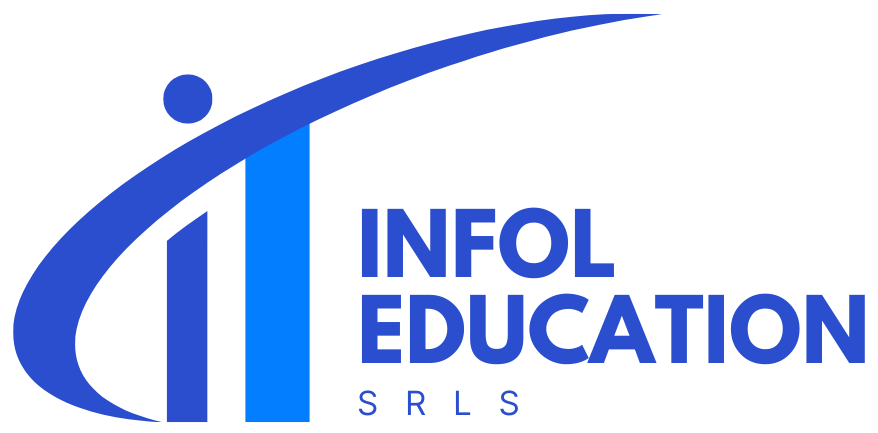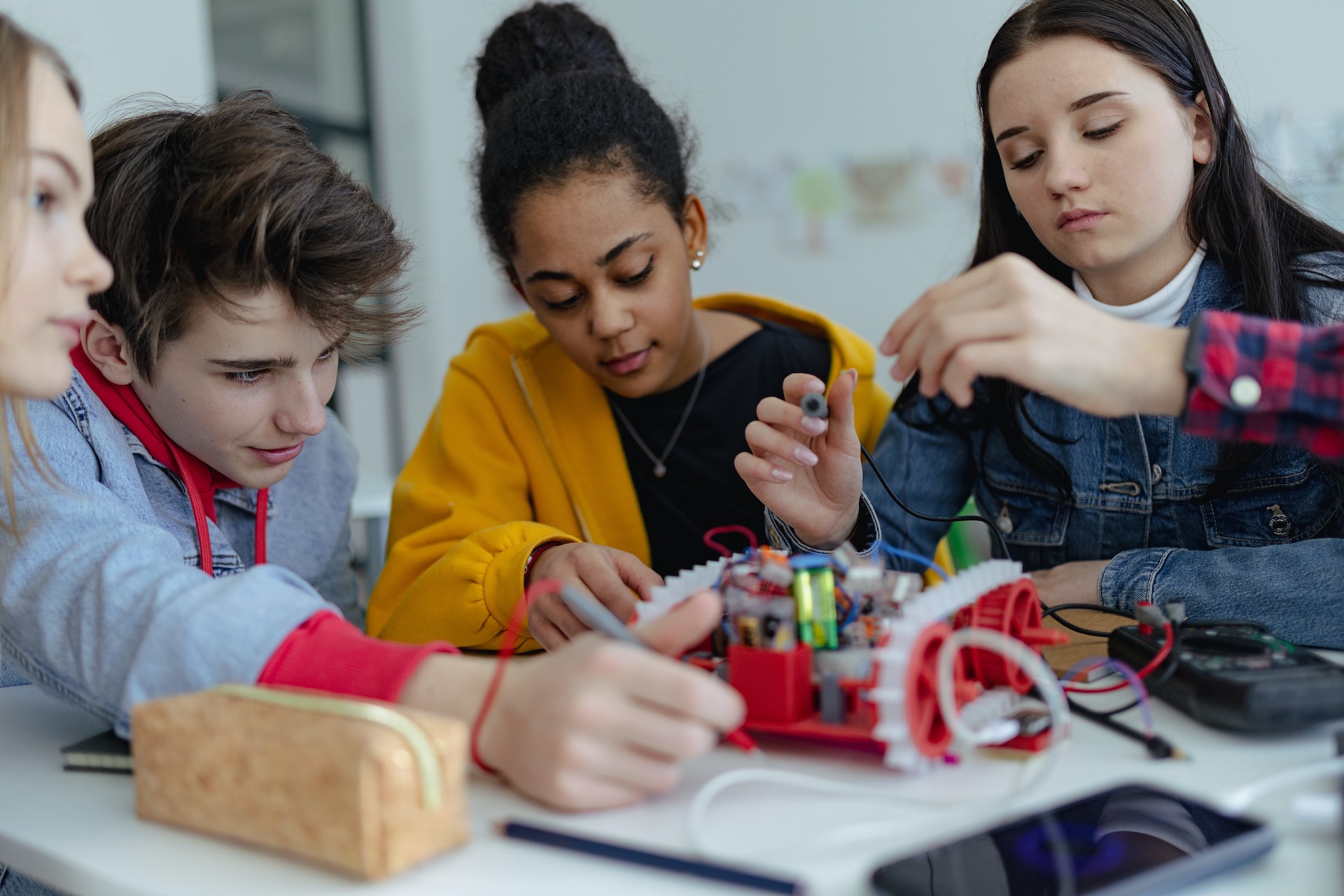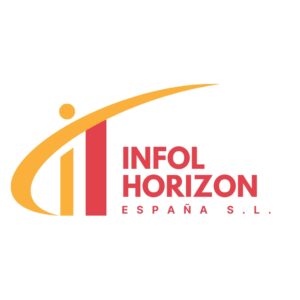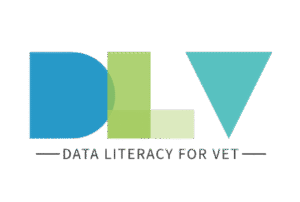DESCRIPTION
In an age where technology is an integral part of daily life, educators play a vital role in preparing students for the future. This comprehensive 5-day training course is designed to empower teachers with the knowledge and skills needed to effectively integrate robotics and coding into their classrooms.
Who Should Attend:
- Educators from various subjects and grade levels.
- Those interested in enhancing their teaching methods with Ict.
- Teachers seeking to prepare students for STEM-related careers.
Objectives:
- Provide a solid foundation in robotics and coding concepts.
- Familiarize teachers with various educational robotics hardware.
- Develop coding proficiency through hands-on exercises and challenges.
- Guide teachers in designing curriculum-aligned robotics projects.
- Foster collaboration and problem-solving skills among educators.
Benefits:
- Equip educators with the tools to engage and inspire students.
- Foster critical thinking, problem-solving, and creativity in the classroom.
- Promote collaboration and teamwork among students.
- Prepare students for the digital age job market.
- Provide a network for sharing ideas and resources among educators.
Introduction to Robotics and Coding – Discover the significance of robotics and coding in education. – Gain fundamental knowledge of coding and robotics. – Engage in hands-on coding activities.
Exploring Robotics Hardware – Explore different types of educational robots. – Learn about robot components and safety precautions. – Experience hands-on robot assembly and programming.
Coding Fundamentals – Get introduced to coding languages and principles. – Master variables, loops, and conditionals. – Enhance problem-solving skills through coding exercises.
Building and Programming Robots – Dive into robot construction projects. – Troubleshoot common robot issues. – Collaborate on robot programming tasks.
Curriculum Integration and Best Practices – Align robotics and coding with educational standards – Design effective robotics lessons and assessments. – Share experiences for classroom implementation
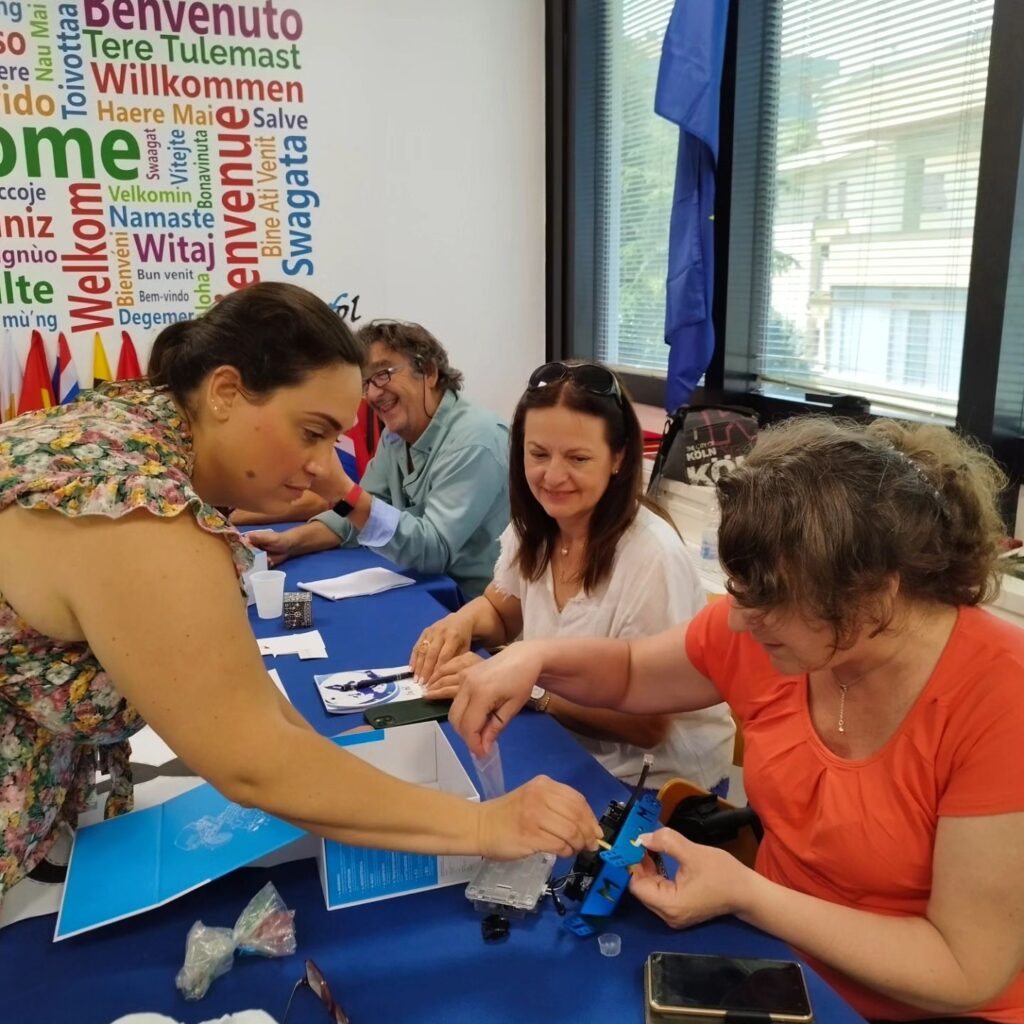
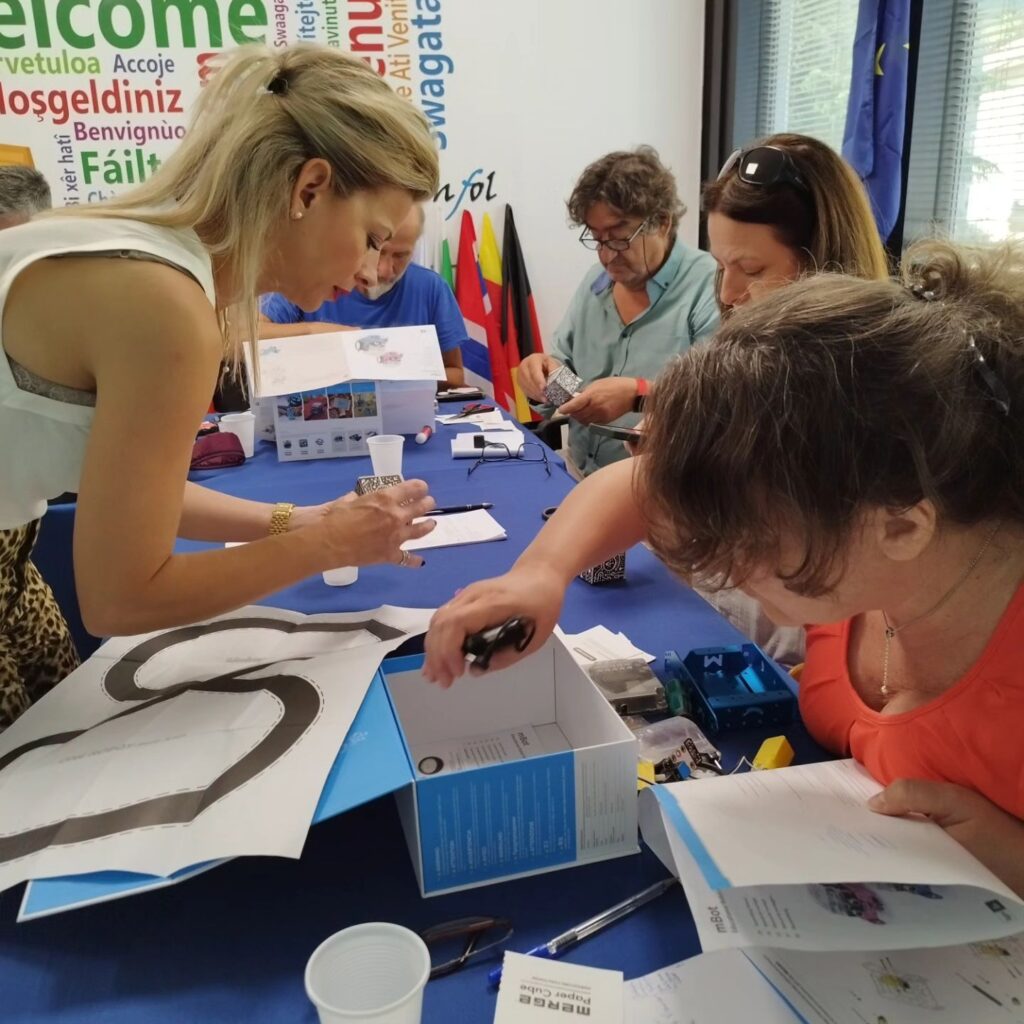
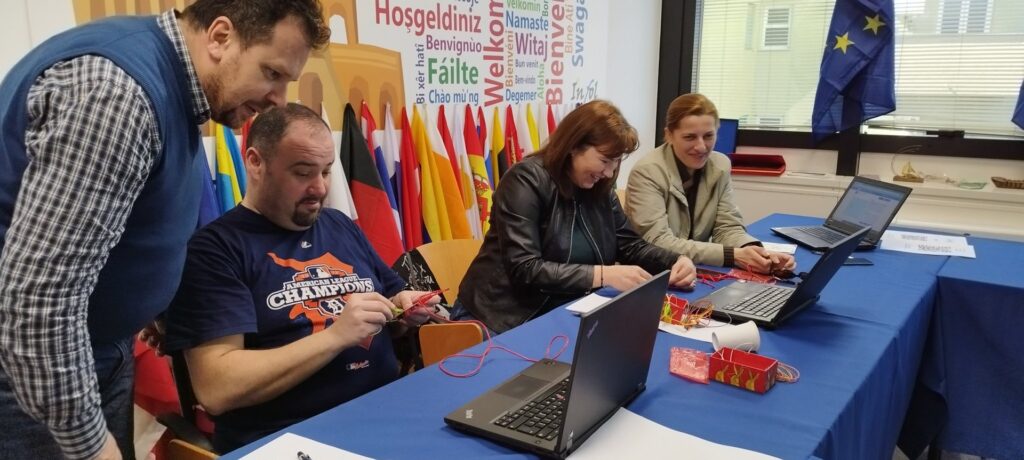
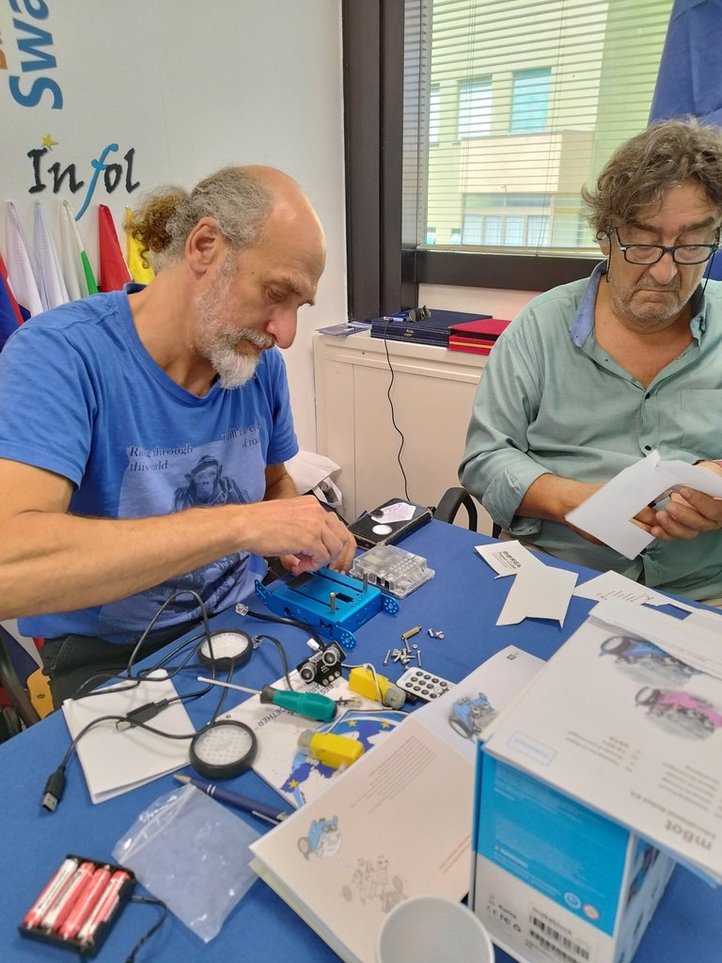
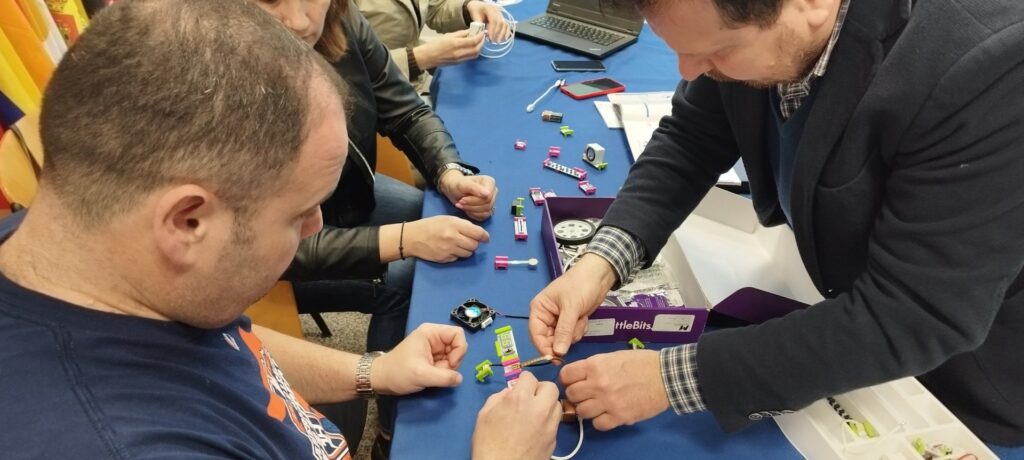
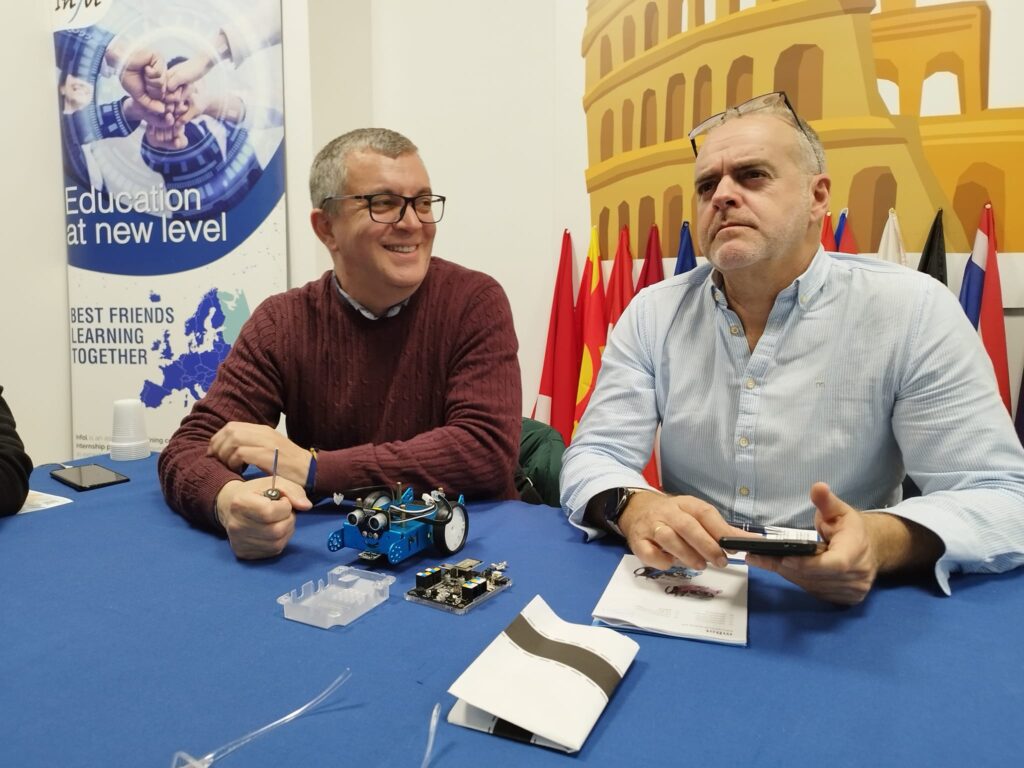
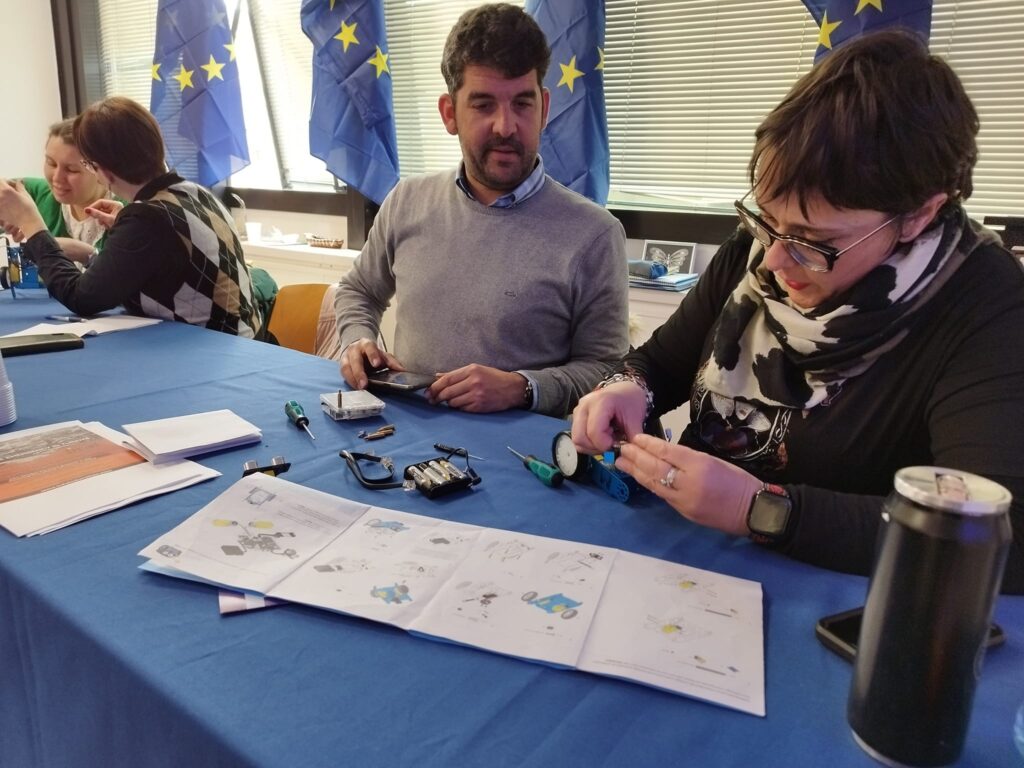
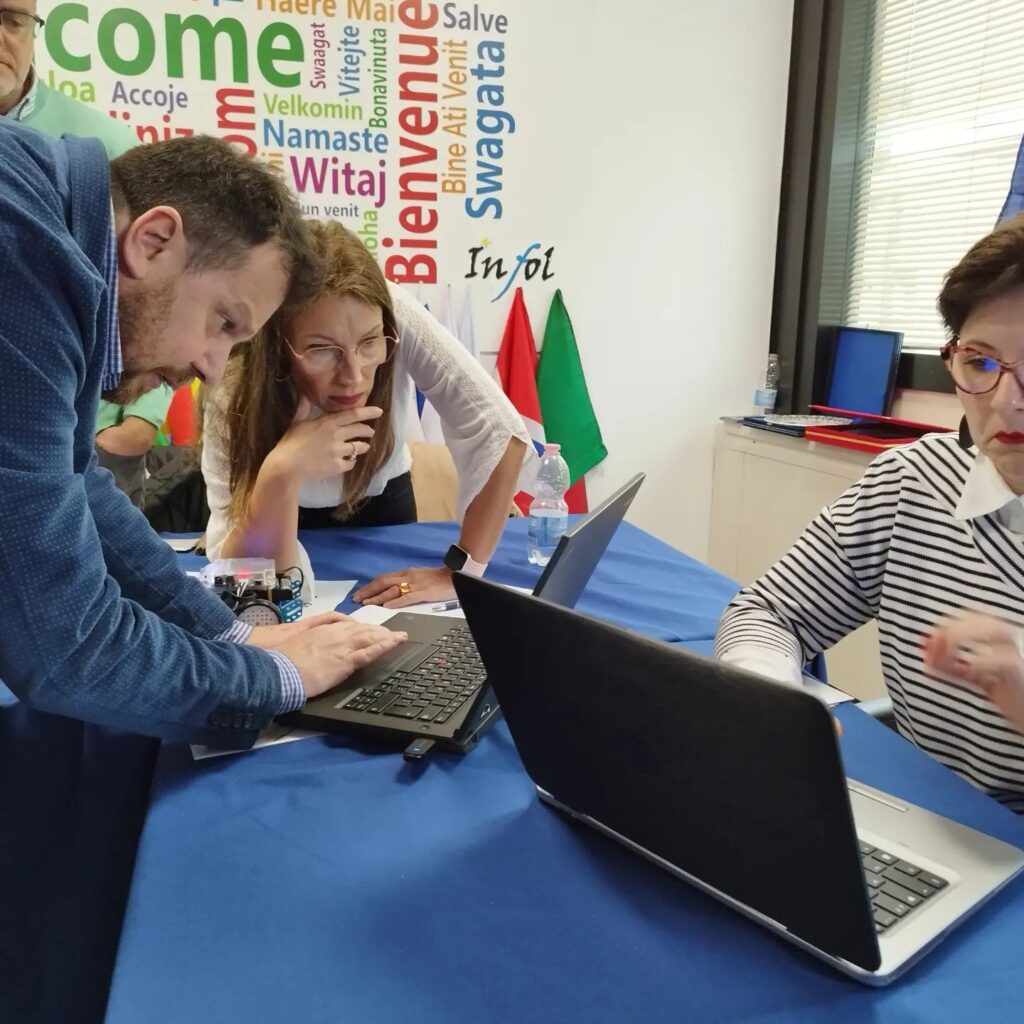
Day 1
- Introduction to Robots, automatic and control systems and programming languages
- Presentation of participants and sharing expectations.
- Introduction to control systems and robotics with arduino board.
- Robot architecture: Main parts. Sensors and Actuators.
- Feedback concept.
- Flux diagrams and programming. Introduction to coding.
- Use of computer as element for coding and control. Control languages. Using scratch in mblock: an easy way to start programming.
- An introduction to the arduino board. Inputs and outputs
- Using a protoboard. Connecting sensors and actuators.
- Practical use of sensors, controllers and actuators: prototyping.
Day 2
- Using mblock for coding Arduino microcontrollers
- Introduction to coding with mblock. Variables and functions.
- Programming conditioning sentences and loops.
- Programming communication for serial ports
- Use of sensors with mblock: potentiometer, lights, infrared, ultrasound, button, …
- Use of peripheral devices in mblock: LEDs, DC motors, servo motors,buzzers…
- Projects: making a digital dice; simple traffic light; two traffic lights;controlling a servo with a potentiometer.
Day 3
- Using mblock for programming robots
- How to build an educative robot. Recommended tools and components.
- Continuous servo motor to move robots
- Making a robot from scratch
- Programming a robot: Robot that hide from lights / Robots that follow lines
Day 4
- Robotics applications in the classroom: robots and Physics experiments for school
- Using a commercial educational robot. Introducing mbot
- Programming mbot: how to avoid an obstacle/ hiding from lights /robot that follows lines
- Time measurement (timer) with arduino board and mblock.
- Galileo’s experiment with arduino / Simulating an elevator
Day 5
- Simulations
- Practical applications
- Evaluation and certification.
20/24/28/40 hours
Course location: Infol – Innovation Training Orientation and Employment
Site: Rome, Athens
Number of days of training: 5/6/7/10
Lesson time: 4 hours
Language of instruction: English,French, Turkish, Italian, Portuguese, Spanish,Bulgarian, Romanian.
Methodology
The course will combine theory input and discussion with analysis of practical incidents with the purpose of finding out different possible solutions. The methodology used is mainly content-based language instruction (communication through specific content).Text discussion, oral presentation and discussion, role-playing, self- and meta-reflection, debating and group interaction will be the strategies more frequently used.
- Active methodologies
- Role playing
- Simulations
- New technologies
- Visits/workshops in educational institutions as schools, universities, educational centers, and companies
Certificates
- Europass Mobility
- Certificate of Attendance
Upcoming sessions
Location: Roma
- September 2024: Week 3 (September 16 – 20)
- October 2024: Week 4 (October 21 – 25)
- November 2024: Week 4 (November 18 – 22)
- January 2025: Week 5 (January 27 – 31)
- February 2025: Week 4 (February 24 – 28)
- April 2025: Week 1 (March 31 – April 4)
- June 2025: Week 1 (June 2 – 6)
- July 2025: Week 2 (July 7 – 11)
- September 2025: Week 2 (September 8 – 12)
- November 2025: Week 3 (November 17 – 21)
- December 2025: Week 3 (December 15 – 19)
